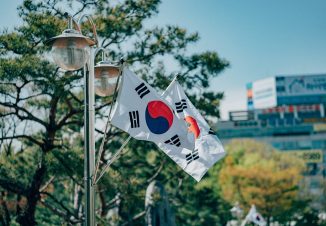
Korea’s new government has made labour reform a centerpiece of its agenda, and it has already managed to move significant amendments to several of Korea’s major employment and labour statutes through the National Assembly. The Minimum Wage Act was amended as of 19 September 2017; the Industrial Accident Compensation Insurance Act was amended as of 24 October 2017 and a package of amendments to several major employment and labour statutes passed into law as of 28 November 2017.
These amendments will, once they become effective, make significant changes to a variety of laws. Perhaps most significantly, these amendments will:
All employers should be aware of these recent amendments and ensure that they comply with them carefully so as to avoid criminal and administrative penalties and civil liability.
We particularly recommend that employers ensure they have a sexual harassment complaint manual in place with clear procedures for effectively and timely handling sexual harassment cases in accordance with the new legal regime; and that they implement proper sexual harassment prevention training that educates employees in those procedures. Companies should also consider measures such as designating a person in charge of handling employee grievances, and creating a cyber report center as a channel through which employees can safely report sexual harassment related matters.
Amendments to workforce policies on annual leave may also be necessary, to account for the change to first year accrual.
A breakdown of notable changes effected by these amendments is set out below.
Sexual Harassment and Equal Employment Opportunities
Equal Employment Opportunity and Work Family Balance Assistance Act (‘EEOA’)
Effective Date of Amendment: 29 May 2018
Sexual harassment training
The amendments are intended to strengthen the requirement to provide workplace sexual harassment prevention training.
The obligation to hold regular sexual harassment prevention training sessions has been prescribed only by regulation, but will now be enshrined in the statute itself. The administrative fine for failure to comply with this obligation will be raised from up to KRW 3 million to up to KRW5 million.
Employers will be required to make sexual harassment prevention materials available in an accessible place and make this known to employees. Violation of this obligation will be subject to an administrative fine of up to KRW5 million.
The employer will also be required to take the following measures specified by regulation of the Ministry of Employment and Labor, to prevent and prohibit sexual harassment.
Obligations on employers handling sexual harassment complaints
Additional more specific obligations will be imposed on employers when facing sexual harassment complaints, and protections for employees will be expanded.
Previously the law only allowed sexual harassment victims to report it and receive legal protection from retaliation or other adverse measures. Now anyone who is aware of the occurrence of sexual harassment in the workplace is entitled to report it to the employer and receive legal protection. If the employer takes adverse measures against a reporting employee, the potential criminal penalty will be up to 3 years’ imprisonment or up to a KRW 30 million fine.
Once alerted to a sexual harassment claim, an employer will have to start an investigation without delay; and must take measures to protect the victim from further feelings of humiliation. During the investigation, the employer will have to take measures necessary to protect the victim claiming sexual harassment, such as a change of workplace or paid leave (unless the victim refuses).
If workplace sexual harassment is confirmed to have occurred, then the employer will have to take appropriate protective action upon the request of the victim, such as a change of workplace, job transfer, or paid leave. Prior to taking disciplinary action against a perpetrator (which is required even under current law, without delay) the opinion of the victim will have to be heard.
The investigator, the person who received the report, and participants in the investigation will all be expressly prohibited from disclosing any confidential information obtained during an investigation of workplace sexual harassment, against the will of the victim.
If the employer fails to investigate, to take protective measures, or to take disciplinary action against the perpetrator, or if the employer discloses confidential information, it will be subject to an administrative fine of up to KRW 5 million.
While previously the law only imposed an obligation to make ‘efforts’, now a firm obligation will be imposed to take appropriate measures such as relocation or paid administrative leave, upon the request of the victim, in the event of sexual harassment by a client or customer. An administrative fine of up to KRW 3 million will apply for non-compliance.
Leave for infertility treatment
A new type of leave will be available for infertility treatment. Employers will be required to provide up to three days of leave (one paid) to receive infertility treatment, such as artificial insemination, upon an employee’s request. An administrative fine of up to KRW 5 million may be imposed for failing to provide this leave, and adverse actions in response, such as termination or disciplinary action, will also be prohibited.
Annual Leave
Labor Standards Act (‘LSA’)
Effective Date of Amendment: 29 May 2018. (For LSA art. 60, sec. 6(3), it will apply to employees who take childcare leave after 29 May 2018.)
Employees’ entitlement to one day of paid leave per month worked during the first year of employment has been treated as an advance on the 15 days of leave provided in the second year; i.e., any days used in the first year could be subtracted from the 15 days provided in year two. Now, any paid annual leave used by an employee during the first year will not be deducted from the following year’s annual leave, allowing use of up to 11 days of annual leave during year one with no effect on the 15 days received in year two.
In calculating the days of annual leave to which an employee is entitled (this entitlement increases with seniority), periods of unpaid statutory childcare leave will be counted as days that the employee worked.
Disability-Related Training
Employment Promotion and Vocational Rehabilitation of Persons with Disabilities
Act (‘PWDA’)
Effective Date of Amendment: 29 May 2018
Mandatory education to improve awareness of issues related to disabled persons shall apply to all personnel. Failure to provide training to improve awareness of issues related to disabled persons properly, and failure to keep records of such training, will be subject to an administrative fine of up to KRW 3 million.
Commuting Accidents
Industrial Accident Compensation Insurance Act (‘IACIA’)
Effective Date of Amendment: 1 January 2018.
Accidents that occur during the ordinary course of commuting will now be regarded as industrial accidents. However, if there is a deviation from the usual route, the provision will not apply unless the deviation occurred due to the ordinary necessities of daily life. The IACIA has until now applied only to accidents that took place under the control and management of the employer’s business.
Removal of Minimum Wage Exemptions
Minimum Wage Act (‘MWA’)
Effective Date of Amendment: March 20, 2018. (For MWA art. 5, sec. 2, it will apply to employment agreements after 20 March 2018.)
Workers who perform unskilled labour (the scope of which is to be defined by the Ministry of Employment and Labor) will have to be paid the full minimum wage, even during a probationary period. Current law allows payment of a reduced minimum wage to employees who are in the first three months of a probationary period, in consideration of the fact that they are in the process of learning the relevant skills. However, because no training period is considered to be generally required for unskilled manual labour, the law will now require payment of the full minimum wage to such employees even in the first three months of a probationary period.
The reduced minimum wage applicable to ‘surveillance or intermittent work’ will be eliminated, making the regular minimum wage applicable.


